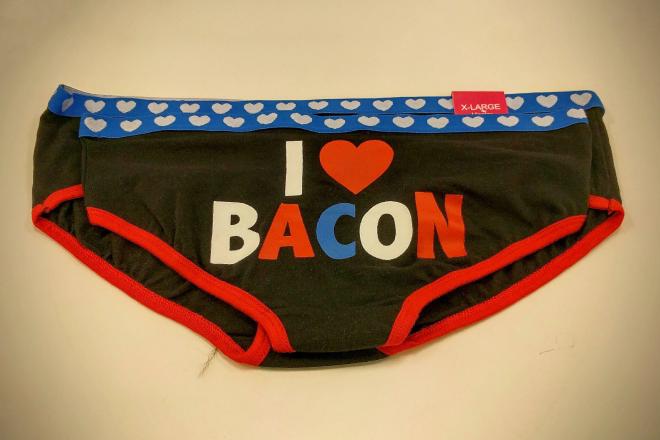Cholesterol is harmless

Recent news:
The nation’s top nutrition advisory panel has decided to drop its caution about eating cholesterol-laden food, a move that could undo almost 40 years of government warnings about its consumption.
The group’s finding that cholesterol in the diet need no longer be considered a “nutrient of concern” stands in contrast to the committee’s findings five years ago, the last time it convened. […]
The finding follows an evolution of thinking among many nutritionists who now believe that, for healthy adults, eating foods high in cholesterol may not significantly affect the level of cholesterol in the blood or increase the risk of heart disease.
But they’re still on the “lower your fat intake” kick:
The greater danger in this regard, these experts believe, lies not in products such as eggs, shrimp or lobster, which are high in cholesterol, but in too many servings of foods heavy with saturated fats, such as fatty meats, whole milk, and butter.
Except, not so much, as I previously posted:
An international team of health scientists has completed a systematic study of the evidence available back in the 1970s and ’80s and concluded that a relationship of causation between fat consumption and coronary heart disease was never established. […]
From among the data on various diet types that was available, there were no differences in the number of deaths from all causes, and no statistically significant changes in death from cardiovascular disease. Eating less fat was not shown to improve a person’s heart health, even where changes in diet led to a reduction in blood cholesterol levels.
So, government advice is finally catching up to the fact that cholesterol isn’t the cause of heart disease. But science, meanwhile, is coming to accept that fat isn’t the cause either. Reducing fat intake doesn’t help even if it lowers cholesterol. So what is the cause of heart disease, you might wonder? Rewind to this time last year:
A sugar-laden diet may raise your risk of dying of heart disease even if you aren’t overweight. So says a major study published online this week in JAMA Internal Medicine. […]
Over the course of the 15-year study, participants who took in 25% or more of their daily calories as sugar were more than twice as likely to die from heart disease as those whose diets included less than 10% added sugar. Overall, the odds of dying from heart disease rose in tandem with the percentage of sugar in the diet — and that was true regardless of a person’s age, sex, physical activity level, and body-mass index (a measure of weight).
Emphasis mine. It doesn’t matter how much you exercise, it doesn’t matter whether you manage to stay thin — too much sugar will kill you. Sugar is what caused the heart disease epidemic.
As Dr Mark Hyman comments:
It’s over. The debate is settled.
It’s sugar, not fat, that causes heart attacks.
Oops. Fifty years of doctors’ advice and government eating guidelines have been wrong. We’ve been told to swap eggs for Cheerios. But that recommendation is dead wrong. In fact, it’s very likely that this bad advice has killed millions of Americans.
A rigorously done new study shows that those with the highest sugar intake had a four-fold increase in their risk of heart attacks compared to those with the lowest intakes. That’s 400%! Just one 20-ounce soda increases your risk of a heart attack by about 30%.
This study of more than 40,000 people, published in JAMA Internal Medicine, accounted for all other potential risk factors including total calories, overall diet quality, smoking, cholesterol, high blood pressure, obesity and alcohol.
[…] This study showed that your risk of heart attacks doubles if sugar makes up 20% of your calories.
So, less than 10% of your calories should be sugar. That’s the WHO’s “realistic” guideline (i.e. one they think people might be able to stick to), though they admit that 5% would be much better. The AHA suggests 8% as a compromise. As a reminder, for a typical man that’s 36g; for a woman, 25g.
I know I keep going on about this, but the message needs to get out.
Drinks are the big problem: One can of Coke is 35g, a Snapple iced tea is 46g, a bottle of “Vitamin Water” is 32g.
It’s also easy enough to blow through your entire day’s sugar budget before even finishing breakfast: One of those tiny Activia yogurts is 19g; a Yoplait one is 27g. One Pop-Tart is 18-20g. Raisin Bran cereals are mostly around 18g per serving, and a serving is only a cupful.
So, skip the muesli and bran, and have an omelet with cheese and a side of bacon. Your heart will thank you.